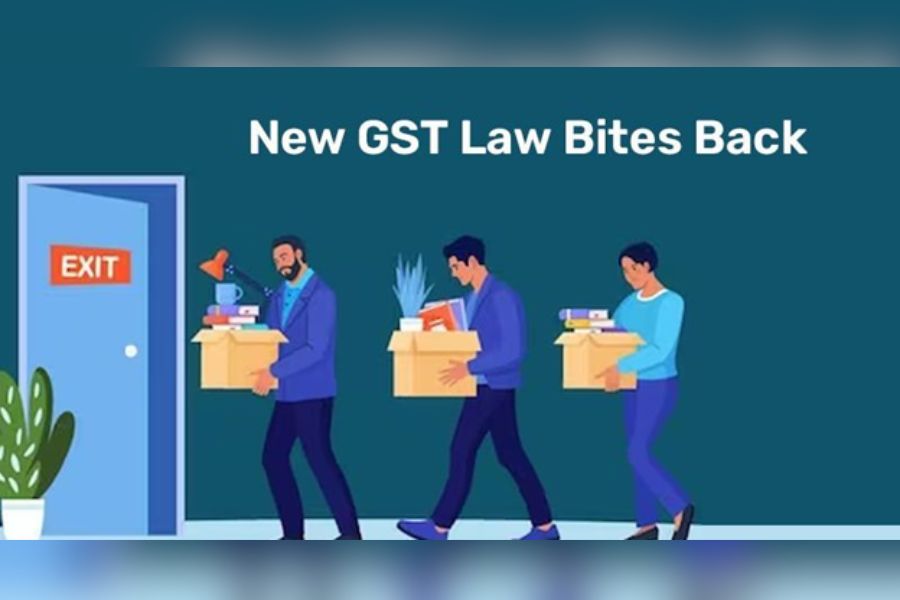The new GST law is start hurting the gaming industry and leading to layoffs. MPL is just one example of a company that has been affected by the law. It is likely that other gaming companies will also be forced to lay off employees or even close down altogether.
The GST Council decided that online gaming, casinos, and horse racing will now be subject to a 28% GST. The decision was taken in the 50th GST Council meeting, held on July 11, 2023.
MPL Layoffs: 28% GST Hits iGaming Industry
The higher tax on online gaming had a negative impact on the gaming industry in India. It made it more difficult for legal gaming platforms to operate, drove customers to illegal gaming platforms, and generated less revenue for the government.
Mobile Premier League (MPL), a gaming platform, is laying off 350 employees because the Indian government has imposed a 28% GST on online gaming companies. “This new rule will increase MPL's tax burden by 350%-400%, so the company is taking steps to "survive" by cutting costs, half of MPL's workforce could be laid off, with the product team being the most affected. This is because the product team is responsible for developing new games and features, which is an area where MPL will need to cut costs”. said MPL CEO.
More than 100 gaming firms have written to the Indian finance ministry to complain about the new GST rule. They say that the tax will stifle foreign investment in the Indian gaming industry.
The new GST rule is having a big impact on the Indian gaming industry. It is forcing companies to lay off employees and cut costs, and it is making it more difficult for foreign companies to invest in the Indian market.
New GST Law on iGaming in Simpler Words
Gaming platforms charge a fee to allow users to play games. This fee is called the entry fee. The platform operator then deducts a certain amount of the entry fee to run the game and the overall platform. This amount is called the gross gaming revenue (GGR). The rest of the entry fee is transferred to the prize pool.
In the past, the GGR was taxed at 18%. This meant that the platform operator had to pay ₹3.6 in taxes for every ₹100 entry fee. However, the new GST rules say that the entire entry fee will be taxed at 28%. This means that the platform operator will have to pay ₹28 in taxes for every ₹100 entry fee.
This will have a number of negative consequences for the gaming industry. First, it will mean that the platform operators will have less money to charge the necessary platform fee. This could lead to higher platform fees for users. Second, it will mean that there will be less money available for the prize pool. This could lead to smaller prize pools and less incentive for users to play games. Third, the existing 30% tax on the user's final winnings will make it even more difficult for users to make a profit from gaming.
The gaming industry argues that the new GST rules are unfair and stifle the growth of the industry. They are calling on the government to reconsider the rules and lower the tax rate. Will the government consider their request? Only time will tell. Until then, you can opt for the 3 Patti, which is a great way to have fun playing online games.
Why is a high tax on Online Gaming Hurting the industry?
The government has decided to tax online gaming at a higher rate. This is because they believe that online gaming is a form of gambling and should be taxed accordingly.
However, the gaming industry argues that this higher tax will distort the market. This is because it will make it more expensive for legal gaming platforms to operate, which will drive customers to illegal gaming platforms.
Offshore gaming platforms are not subject to the same regulations as legal gaming platforms, so they can offer lower prices and more attractive games. This will make it difficult for legal gaming platforms to compete and could lead to the collapse of the legal gaming industry in India. People will be inclined towards games like Dragon Tiger to enjoy games with real money.
The government also argues that the higher tax will generate more revenue for the government. However, the gaming industry argues that this is a false hope. This is because most of the revenue from the higher tax will go to illegal gaming platforms, which do not pay taxes.
Disclaimer: This is a sponsored article and does not involve any editorial input. The views expressed, including any statements, views, opinions, announcements, declarations, or affirmations are neither supported, nor endorsed by The Telegraph Online.











